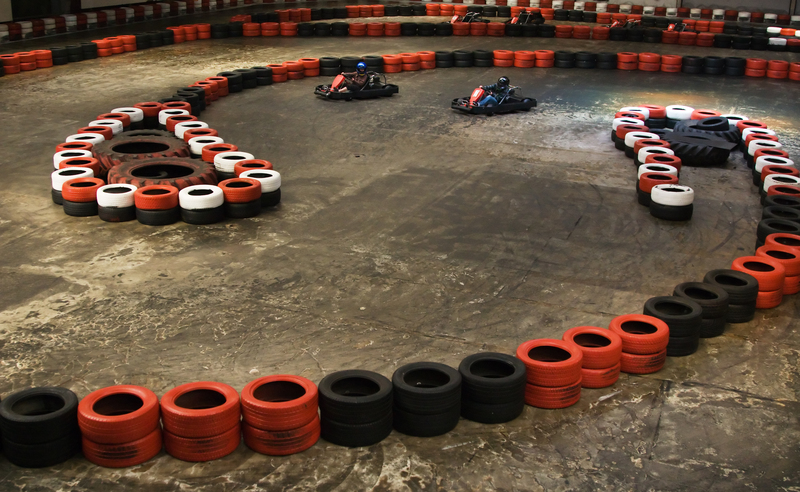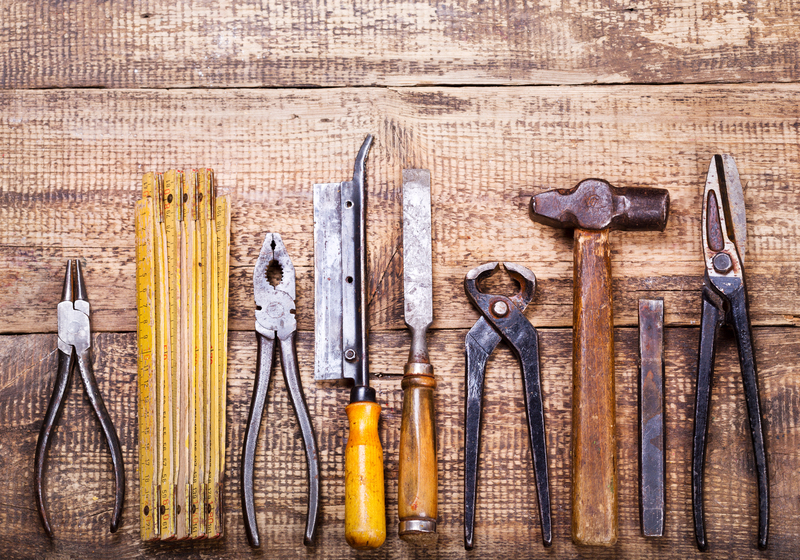Ditch These Plastics: A Guide to Safer Alternatives
Plastic is everywhere -- from the bottles we drink from to the packaging our food arrives in, and even in some of the clothes we wear. However, as awareness of the environmental and health impacts of plastic grows, more and more people are asking: How can we ditch plastic and find safer alternatives? This comprehensive guide will explore the dangers of everyday plastics, highlight products to avoid, and offer eco-friendly, practical substitutes for a greener, healthier lifestyle.
Understanding the Problem with Plastics
Plastics provide undeniable convenience, but this comes at a high cost. Single-use and certain types of plastic can leach toxic chemicals, pollute our oceans, harm wildlife, and contribute massively to landfill waste. Let's dig deeper into the problems caused by plastics and why it's crucial to make a change.
Plastic Pollution and the Environment
- Plastics don't naturally decompose. Some items can take hundreds of years to break down in landfill.
- Microplastics are entering our waterways, affecting marine life and even entering the food chain.
- Burning plastics releases toxic gases, contributing to air pollution and climate change.
Health Hazards Linked to Plastics
Many plastics contain **additives like phthalates, bisphenol A (BPA), and styrene**, which can leach into food and drinks. These chemicals are linked to health concerns such as:
- Hormone disruption (especially BPA and phthalates)
- Increased risks of cancer
- Birth defects and developmental issues in children
- Obesity and metabolic disorders
Given these potentially serious issues, it's time to ditch unsafe plastics for safer solutions.

Which Plastics Should You Ditch?
Not all plastics are created equal. To make smart choices, learn to identify the most problematic types by their recycling codes:
Plastics to Avoid: Know Your Numbers
Check the recycling triangle on your products -- the number inside indicates the type of plastic used. Here's a breakdown:
- Plastic #3 (PVC or Polyvinyl Chloride): Found in plumbing pipes, toys, food wraps, and more. Contains phthalates and sometimes heavy metals.
- Plastic #6 (Polystyrene): Used in disposable cups, food containers, and packaging peanuts. Strongly linked to possible carcinogens.
- Plastic #7 ("Other" - Polycarbonate, BPA, etc.): Includes plastics that don't fit into other categories. Frequently contains BPA or other estrogen-mimicking chemicals.
Safer, but still with caveats:
- Plastic #1 (PET or PETE): Common in water and soda bottles. Safe for single use; not recommended for repeated use due to bacterial growth and potential leaching.
- Plastic #2 (HDPE) and #5 (PP): Generally considered safer but still involve environmental issues as they don't biodegrade easily.
Everyday Items to Replace: Ditch These Plastics Now!
With the most harmful plastics identified, here's a list of everyday items to replace with non-plastic alternatives for a healthier home and planet:
- Plastic water bottles
- Cling wrap and sandwich bags
- Plastic straws and stirrers
- Single-use food containers and takeout trays
- Plastic grocery bags
- Polyester and acrylic clothing
- Plastic toothbrushes
- Disposable razors
- Synthetic cleaning sponges
Safer, Sustainable Alternatives to Harmful Plastics
Modern innovation has made it easier than ever to switch from plastic to alternatives that are safe, eco-friendly, and stylish. Here are the best options:
1. Glass: A Versatile and Healthy Choice
Glass containers are non-porous, don't leach chemicals, and are perfect for food storage and serving:
- Glass water bottles and jars -- durable, reusable, and dishwasher safe.
- Glass food storage with snap lids -- ideal replacements for plastic Tupperware.
- Glass bakeware -- perfect for oven-to-table convenience.
2. Stainless Steel: The Durable All-Rounder
Stainless steel is strong, long-lasting, and widely used for:
- Travel mugs, thermoses, and pitchers
- Bento lunch boxes
- Food-grade kitchen utensils
- Razor handles and soap dishes
3. Silicone: Flexible and Food-Safe
Silicone is a relatively new material that's heat-resistant, flexible, and free from BPA and phthalates. Consider silicone for:
- Reusable food bags and sandwich pouches
- Baking mats and muffin trays
- Straws and ice cube trays
4. Beeswax Wraps and Natural Fibers
- Beeswax wraps make a great substitute for cling wrap -- they can be reused for months!
- Choose clothes made from organic cotton, hemp, linen, or bamboo instead of polyester and acrylic.
- Opt for jute, cotton, or hemp grocery bags in place of plastic ones.
5. Wood, Bamboo, and Other Natural Materials
Renewable resources like wood and bamboo provide biodegradable, non-toxic options:
- Bamboo toothbrushes and hairbrushes
- Wooden or bamboo cutlery and plates
- Compostable utensils and coffee cups made from plant starch
6. Compostable and Biodegradable Innovations
As technology advances, more compostable options are available:
- Biodegradable trash bags made from cornstarch or PLA (polylactic acid)
- Tableware from palm leaves, wheat bran, and other plant-based materials
- Packaging made of mushroom mycelium or seaweed-derived substances
DIY Ideas: Make Your Own Plastic-Free Alternatives
If you enjoy getting creative or want to save money, try these DIY projects to reduce plastic at home:
- Homemade beeswax wraps: Use cotton fabric, beeswax, and a touch of jojoba oil for easy, reusable food wraps.
- Natural cleaning scrubbers: Crochet or knit your own scrubbies from sisal, hemp, or cotton yarn.
- Reusable produce bags: Stitch up some drawstring bags from old t-shirts or mesh curtains.
- Upcycled glass jars: Repurpose sauce, pickle, or jam jars for pantry storage or zero-waste shopping.
How to Transition Away from Plastic
Making the switch to plastic alternatives doesn't have to be overwhelming. Follow these tips to successfully ditch plastics in your daily life:
- Audit Your Plastic Use: Spend a week tracking all the plastics you use -- from wrappers to toothbrushes.
- Start Small: Replace one item at a time. Start with easy swaps like water bottles or grocery bags.
- Invest in Quality: Choose durable, long-lasting alternatives. While the initial cost may be higher, you'll save money in the long run.
- Get the Family Involved: Teach children about plastic pollution and make finding alternatives a shared project.
- Support Plastic-Free Businesses: Shop at stores that offer bulk buying, refills, or package-free goods.
- Dispose Responsibly: For plastics you can't avoid, recycle according to local guidelines to minimize waste.
The Bigger Picture: Advocacy and Community Action
Reducing your own plastic use is a great start, but you can amplify your impact by encouraging others and supporting systemic change:
- Join local cleanup events -- help remove plastics from your environment.
- Support bans on single-use plastics in your city or state.
- Contact brands and ask for greener packaging and more sustainable products.
- Spread the word! Share your favorite tips for ditching plastic on social media or with friends and family.

Frequently Asked Questions: Safer Alternatives to Plastic
Are all types of plastic dangerous?
Not all plastics have the same risk level. While some, like BPA-containing polycarbonate (#7) or PVC (#3), are particularly concerning, even "safer" plastics are a threat to the planet due to their persistence and pollution.
Can you recycle "compostable" plastics?
Most compostable plastics require industrial composting facilities to break down properly. Check local rules, and whenever possible, choose non-plastic options like glass, metal, or untreated wood.
Is silicone a plastic?
Silicone is technically a synthetic polymer, but unlike most plastics, it doesn't contain BPA, phthalates, or other harmful additives. Food-grade silicone is generally considered safe and long-lasting.
Conclusion: Why It's Time to Ditch Plastic
The age of single-use plastic is coming to an end -- and for good reason. By learning about the dangers of specific plastics and embracing safe, sustainable alternatives, you are protecting your health and the planet for generations to come. Ditch plastics today, empower your community, and make every small change count. The future of a cleaner, greener world starts with your daily choices!
Ready to take the next step? Try swapping one plastic product with an alternative each week and share your progress. Together, we can build a safer, more sustainable future -- one plastic-free swap at a time.






